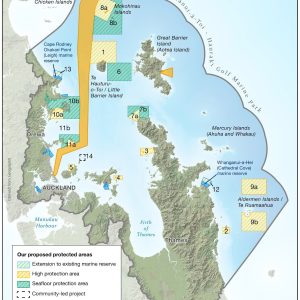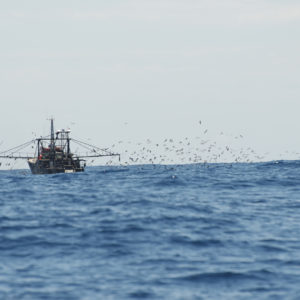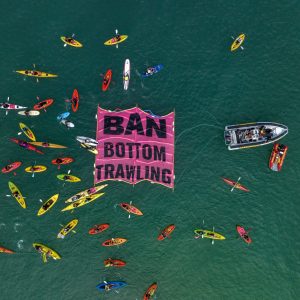Recent government proposals to create recreational fishing parks in the Hauraki Gulf and Marlborough Sounds as a solution to enhancing recreational fishing are curious given that none of the measures will restore fish abundance or catchability.
These recreational fishing parks have drawn attention away from the three other types of Marine Protected Areas proposed for the 12 nautical mile (nm) Territorial Sea – a network of marine reserves, seabed reserves and species sanctuaries.
Consultation on the Marine Protected Areas (MPA) Act is a joint effort between the Ministers for Primary Industries, Conservation and Environment.
LegaSea encourages you to make a submission before the 11th March deadline.
Mixed response to proposals
Including the recreational fishing parks in the MPA discussion document has drawn criticism from many quarters, including commercial and recreational fishers, some environmentalists who want tighter controls on amateur fishers and reserves out to the 200nm limit, and Maori who are struggling to establish their own stake in the inshore zone.
LegaSea will be promoting the New Zealand Sport Fishing Council’s views via our online channels. Please keep updated as new information is emerging as we dig deeper into the objectives and implications of these proposals.
If the government is committed to enhancing the enjoyment and value of recreational fishing then it must get serious about restoring abundance, by reducing wastage and the impacts of commercial fishing.
A marine park has existed in the wider Hauraki Gulf since the year 2000. Little regard has been given to the statutory obligations to sustain the life-supporting capacity of the environment of the Gulf and its islands, as matters of national significance.
There is no doubt that snapper fishing in the Gulf has improved from the low levels of the 1990s. In recent years surveys show that recreational snapper catch has declined by more than 50%. This decline didn’t occur because there is no recreational fishing park, it declined because the fish did not move inshore and stay for summer the way they had in 2011 and 2012!
Drawing lines on a map that fish cannot read is clearly a waste of time.
A simple solution
From our perspective the solution to enhancing recreational fishing is a simple one – clearly identify the problem and devise solutions to address those issues.
Nutrient loadings and contaminants from land use entering waterways and choking nursery areas have already been identified as the major threat to the Gulf. Further out, the damage caused by mobile bulk harvesting methods such as trawling has dramatically changed the seabed and the life it supports.
A recent study of the Marlborough Sounds found sedimentation from forestry activities and trawling, and dredges scouring channels in the seabed, was causing significant damage to the local ecology. Locals are supporting a marine biologist’s call to ban trawling and scallop dredging from sensitive areas within the Sounds.
We don’t need MPAs that just shift fishing effort from one area into someone else’s waters. We support a durable solution, an integrated package of measures to increase fish abundance, improve catchability and one that provides for the public’s expectations, health and wellbeing. That package includes:
- an inshore zone with limited commercial fishing;
- managing to higher environmental standards; and
- lowering commercial catch levels.





